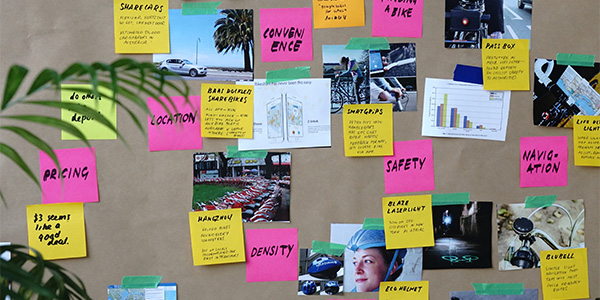
UX newsletter — March 2019

Email not displaying correctly? View it in your browser.
Message from the Editor
A few years back, I overheard a conversation between an experienced user researcher and a junior colleague. The junior colleague had been tasked by his team with discovering which of two alternative designs users preferred. He was asking for advice on how best to plan the research.
The senior user researcher took a deep breath. She said, "User researchers only care about 'preference' once you've got two perfect alternatives. This will probably never happen in your lifetime."
Since then, I've seen preference testing become more, not less popular in user research. This month I wanted to explain why it has no place in your research toolbox. I hope you find it useful.
— David Travis

Researchers sometimes ask participants which of two alternative designs they prefer. The data from these studies comprise opinions that have little predictive value. In contrast, multivariate A/B testing involves target users doing real tasks. The data from these studies comprise behavioural observations that predict real-world behaviour. Read the article in full: Repeat after me: Preference testing is not A/B Testing

Most usability tests culminate with a short questionnaire that asks the participant to rate, usually on a 5- or 7-point scale, various characteristics of the system. Experience shows that participants are reluctant to be critical of a system, no matter how difficult they found the tasks. This article describes a guided interview technique that overcomes this problem based on a word list of over 100 adjectives. We also include a spreadsheet to generate and randomise the word list. Read the article in full: Measuring satisfaction: Beyond the usability questionnaire.
What we’re reading

Some interesting UX-related articles that got our attention over the last month:
- Some tools and resources for discovery research identified as useful by people on my 5-day user research fundamentals course.
- The goal in sampling with qualitative data is to detect repeating patterns — not to achieve statistical significance. As such, sample sizes in the 10–20 person range are extremely common.
- Auto-play videos are an assault on our autonomy as human beings. They're an insidious effort to eliminate our free will and compel us to behave in a particular way.
- Repeating back what the user has just said is at the heart of good voice interaction design. "Visibility of system status" is fundamental to making a forgiving virtual assistant.
- If the solution to your problems and the solution to your users' problems don't overlap, your business plan won't work.
- At best, JTBD is just a distraction from the real skills we need. At worst, it takes our team in a completely wrong direction.
- How Silicon Valley Puts the 'Con' in Consent.
Like these? Want more? View our posts on Twitter or Facebook.
Upcoming UX training courses

A 5-day immersion seminar that shows you how Government Digital Services (GDS) plan and carry out user research within Government. You'll practice interviewing and contextual research, carry out usability testing, explore the bigger picture of assisted digital and discover how to plan user research on agile projects. View the full syllabus: User Research Fundamentals.
In this fun and hands-on training course, you'll practice all the key areas of UX — from interviewing your users through to prototyping and usability testing your designs — while you prepare for and take the BCS Foundation Certificate exam. View the full syllabus: Foundation Certificate in User Experience.
UX quotation of the month
"Wallowing in that state of not knowing is not easy, but it's necessary." — David Kelley, Founder of IDEO.
Did I mention I've published a book?
It's titled Think Like a UX Researcher and you can get free bonus content if you order it in the next two weeks.
Hungry for more?
Read previous newsletters.
Want to receive your own copy of this newsletter?
Join our community of people interested in user experience. Sent monthly. No spam.
|